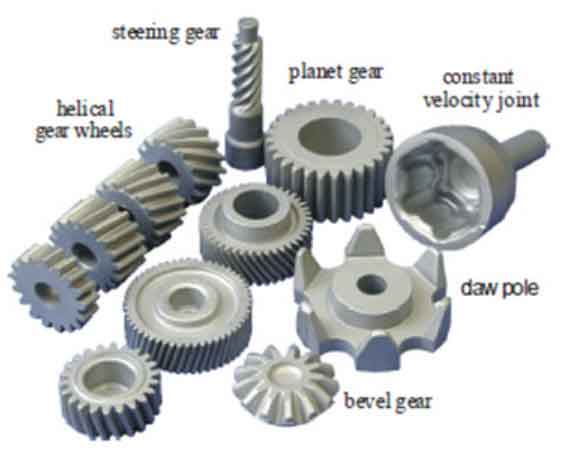Precision forging is a specialized manufacturing process that involves shaping metal components with high accuracy, strength, and quality. It is a technique that combines the art of craftsmanship with the science of metallurgy to create complex and reliable metal parts. This article explores the intricacies of precision forging, highlighting its advantages, techniques, and applications in various industries.

I. The Precision Forging Process:
Precision forging begins with the selection of suitable raw materials, such as steel, aluminum, or titanium alloys. The metal is heated to a specific temperature to make it malleable and ready for forging. The heated metal is then placed into a die, which is a tool with a cavity that matches the desired shape of the final component. The die is closed, and immense pressure is applied to the metal, causing it to deform and take the shape of the die. The component is then cooled and removed from the die, undergoing further finishing operations as needed.
II. Advantages of Precision Forging:
Precision forging offers several advantages over other manufacturing processes:
- Enhanced Strength: The forging process aligns the metal’s grain structure, resulting in improved mechanical properties and higher strength compared to cast or machined components.
- Excellent Dimensional Accuracy: Precision forging allows for tight dimensional tolerances, ensuring the creation of components with precise and consistent measurements.
- Superior Surface Finish: The forging process produces components with superior surface finish and reduced surface porosity compared to other manufacturing methods, minimizing the need for additional finishing operations.
- Material Savings: Precision forging optimizes material usage, minimizing waste and maximizing the utilization of raw materials.
- Cost-Effectiveness: Despite the initial tooling costs, precision forging can be cost-effective for high-volume production due to its material savings, reduced machining requirements, and increased component strength.
III. Techniques in Precision Forging:
Different techniques are employed in precision forging to achieve specific component requirements:
- Closed-Die Forging: This technique involves the use of two or more dies to enclose the metal and shape it into the desired form. The dies apply pressure from all sides, ensuring accurate shaping and precise control over the component’s dimensions.
- Open-Die Forging: In this technique, the metal is placed on an anvil or a flat surface, and repeated blows from a hammer or press deform the metal into the desired shape. Open-die forging is often used for larger and simpler components.
- Impression-Die Forging: Impression-die forging involves the use of dies with specific impressions or cavities that create intricate shapes and details in the final component. This technique is suitable for producing complex components with high precision.
IV. Applications of Precision Forging:
Precision forging finds applications in various industries, including:
- Automotive: Precision-forged components are commonly used in automotive engines, transmissions, drivelines, and suspension systems to ensure strength, durability, and performance.
- Aerospace: The aerospace industry relies on precision-forged components for critical applications, such as aircraft landing gear, turbine disks, and structural components, where high strength and reliability are paramount.
- Oil and Gas: Precision-forged components play a crucial role in the oil and gas industry, providing reliable and durable parts for drilling equipment, valves, and pumps that operate under extreme conditions.
- Power Generation: Precision forging is utilized in power generation applications, such as turbine blades, rotors, and other critical components that require high strength and resistance to temperature and pressure.
Precision forging is an artful and precise manufacturing process that enables the creation of high-quality metal components. With its ability to enhance strength, achieve dimensional accuracy, and provide superior surface finish, precision forging is an essential technique in industries that demand reliable and durable metal parts. By combining craftsmanship, metallurgical expertise, and advanced forging technologies, manufacturers can produce components that meet the stringent requirements of modern applications.
